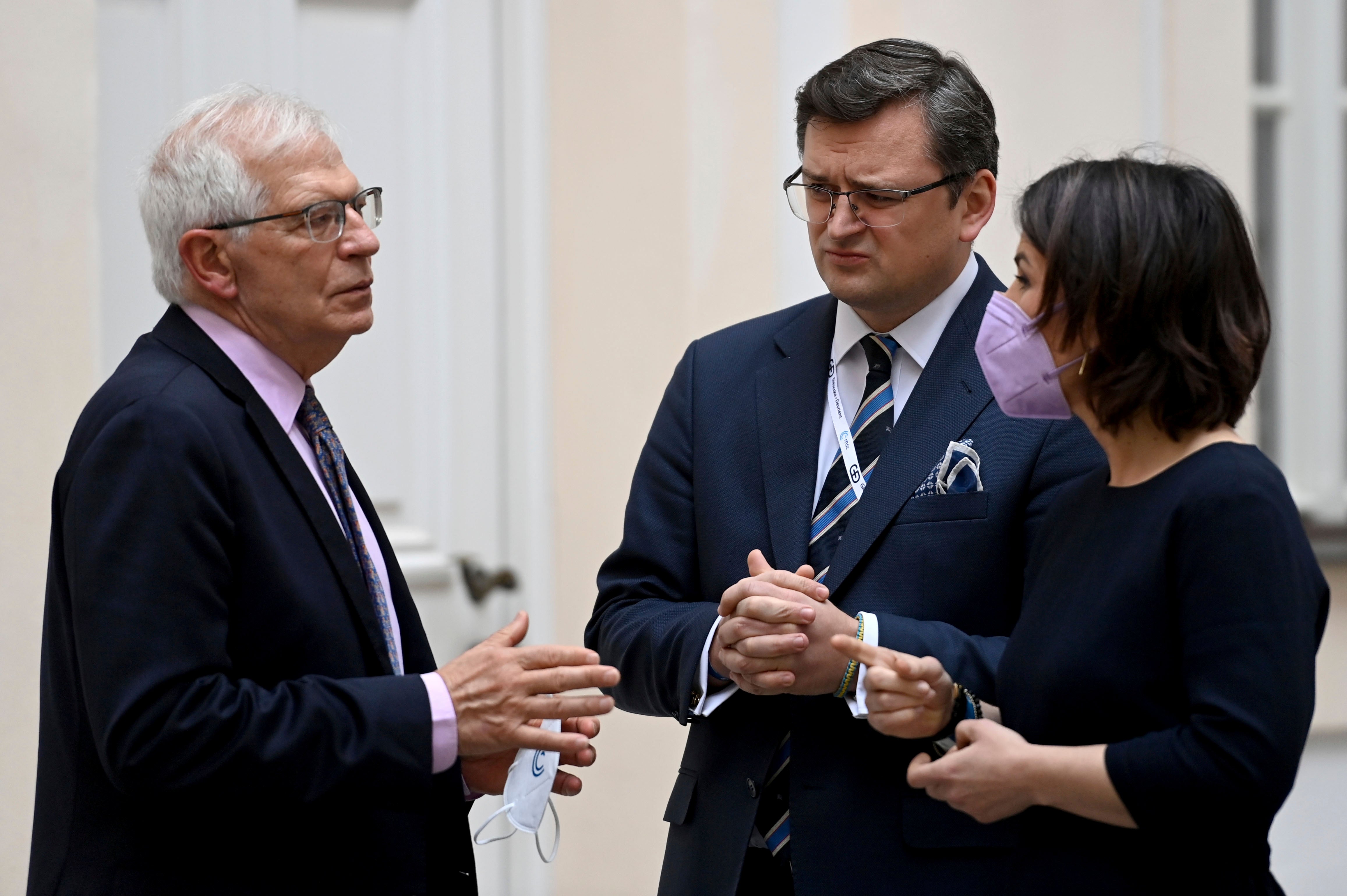EU foreign policy chief: Bloc won't accept Bosnia breakup
The European Union’s foreign policy chief says he’s deeply concerned about tensions in Bosnia and has appealed to leaders there to avoid the breakup of the Balkan country

Your support helps us to tell the story
From reproductive rights to climate change to Big Tech, The Independent is on the ground when the story is developing. Whether it's investigating the financials of Elon Musk's pro-Trump PAC or producing our latest documentary, 'The A Word', which shines a light on the American women fighting for reproductive rights, we know how important it is to parse out the facts from the messaging.
At such a critical moment in US history, we need reporters on the ground. Your donation allows us to keep sending journalists to speak to both sides of the story.
The Independent is trusted by Americans across the entire political spectrum. And unlike many other quality news outlets, we choose not to lock Americans out of our reporting and analysis with paywalls. We believe quality journalism should be available to everyone, paid for by those who can afford it.
Your support makes all the difference.The European Union's foreign policy chief said Sunday that he's deeply concerned about tensions in Bosnia and has appealed to leaders there to avoid the breakup of the Balkan country.
“The situation in Bosnia is more worrying than ever. It was never easy, but now the centrifugal tendencies are really very worrying," Josep Borrell, the EU's high representative for foreign policy, said at an annual security conference in Munich.
Last month, the Biden administration announced new sanctions against Bosnian Serb leader Milorad Dodik, who has for years been advocating that the Serb-run part of Bosnia leave the rest of the country and unite with neighboring Serbia. The U.S. accused him of “corrupt activities” that threaten to destabilize the region and undermine a U.S.-brokered peace accord from more than 25 years ago.
“I can assure you that, in close contact with the United States, I and Secretary of State (Anthony) Blinken have issued a very serious warning. We will not accept the breakup and disintegration of Bosnia and Herzegovina," Borrell said.
He said he had been in contact with Dodik “to ask him to recall his duty to participate in the common institutions" of the country.
“I appeal to the responsibility of the political leaders of Bosnia-Herzegovina to avoid the breakup of the country,” Borrell said.
The Dayton Peace Accord ended Bosnia’s war, which killed more than 100,000 people and left millions homeless in the worst carnage in Europe since World War II. The accord established two separate governing entities in Bosnia — one run by Bosnia’s Serbs and the other dominated by the country’s Bosniaks and Croats. The two are linked by shared, state-wide institutions, and all actions at a national level require consensus from all three ethnic groups.
Dodik says he and Bosnian Serbs are being unfairly picked on by the U.S. and wrongly accused of corruption.